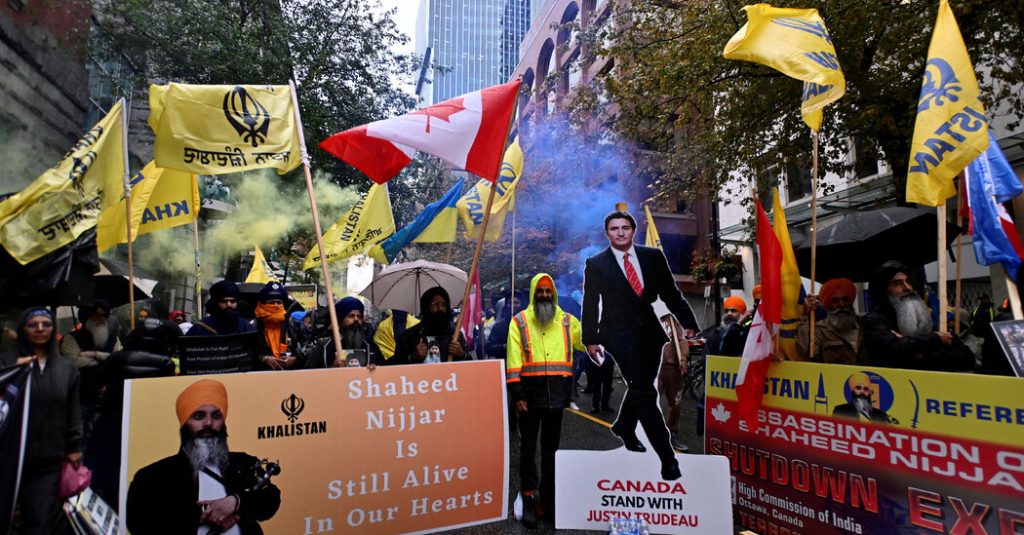Three men were arrested and charged in the killing of Sikh leader Hardeep Singh Nijjar in British Columbia. Nijjar, a Sikh nationalist and Canadian citizen, was gunned down by two masked assailants in the parking lot of a temple in Surrey last June. The men charged with first-degree murder and conspiracy to commit murder were identified as Karan Brar, Kamalpreet Singh, and Karanpreeet Singh, all Indian nationals in their 20s living in Canada for three to five years. The Royal Canadian Mounted Police are investigating possible links to the Indian government’s involvement and have faced challenges in their relationship with Indian investigative partners.
Nijjar was a leader in the local Khalistan movement, seeking to create a separate Sikh nation in India, including the state of Punjab. He moved to Canada from Punjab in the 1990s during India’s crackdown on Sikh leaders. As the president of the Guru Nanak Sikh Gurdwara temple in Surrey, he had been labeled a terrorist by the Indian government in 2020. His killing led to diplomatic tensions between Canada and India after Prime Minister Justin Trudeau accused India of involvement, a charge strongly denied by the Indian government. Expulsions of senior diplomats occurred as a result.
Jagmeet Singh, leader of the New Democratic Party in Canada, testified about potential threats against his life at a foreign interference inquiry. The inquiry, which released its interim report, revealed Indian intelligence officials using proxies in Canada to influence communities and politicians, particularly in the Khalistan movement. The Sikh community, including Balpreet Singh Boparai of the World Sikh Organization of Canada, hopes for transparency in identifying those responsible for the killing and other interference activities to bring them to justice. Progress in the investigation of Nijjar’s murder has been limited, with little information released over the past year.
Superintendent Mandeep Mooker, a homicide investigator for the Mounties, credited the bravery of the Sikh community for coming forward and providing information that led to the arrests in Nijjar’s case. The lack of resolution leading up to the one-year anniversary of Nijjar’s death had caused concern in the community, with hope that justice will be served for his killing. The involvement of Indian officials in the killing and other interference activities must also be addressed for the Sikh community to find comfort. The ongoing investigations into Nijjar’s killing and foreign interference activities highlight the complexities and challenges in dealing with these sensitive issues between Canada and India.
The relationship between Canada and India has been strained by the allegations of Indian involvement in Nijjar’s killing. The arrest of the three men accused of carrying out the murder is seen as a step towards justice, but the Sikh community and various organizations believe that accountability for those higher up in the plot is essential. The implications of foreign interference in Canadian elections, as revealed in the interim report of the public inquiry, further underscore the need for transparency and action to address these complex issues. With tensions rising between the two countries, finding a resolution that satisfies all parties involved will be crucial in maintaining diplomatic relations and ensuring justice is served.


